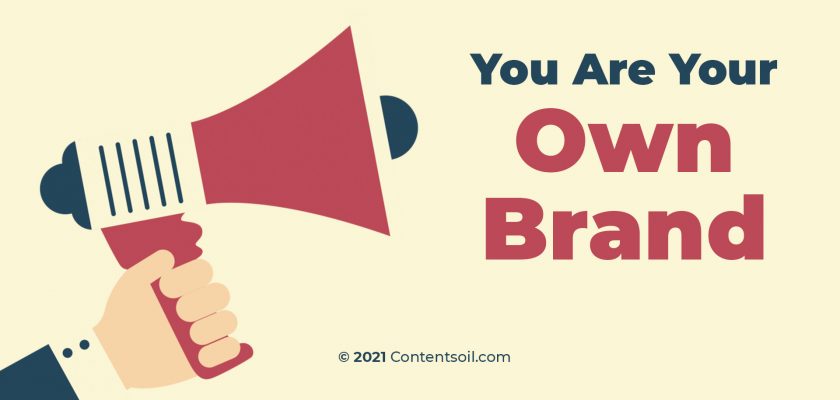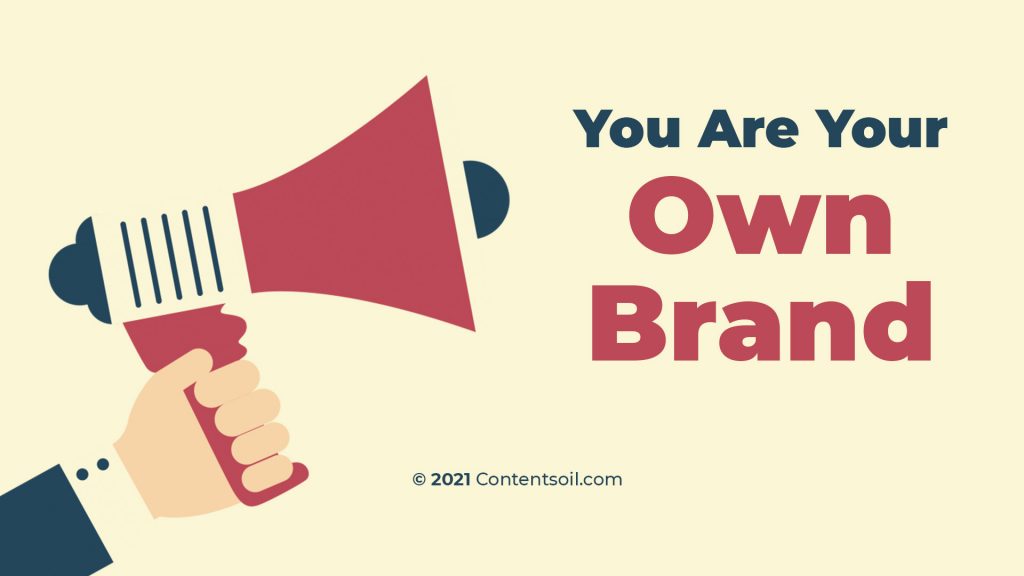Personal branding is one type of marketing for people and their careers as a brand.
Personal branding is the continuing process of creating and sustaining a person’s, group’s, or organization’s image and impression.
Although some self-help strategies emphasize self-improvement, personal branding describes success as a type of self-packaging.
Your identity is how you present yourself to the world. It is unique skills, experience, and personality that your followers want to see.
It is telling your story and the idea people form of you based on your online credibility.
Personal Branding:
1. Create Content With A Purpose:
Many advertisers would inform you that producing and posting new content daily is the perfect way to draw more people and consumers to your personal brand.
They’ll tell you to make more videos and write more blog posts, and soon you’ll become an influential brand and meet your KPIs.
We’ve seen the plan crash many times.
That is also one of the most frequent grievances we hear from companies and marketers of all sizes: they spend all of this time making new content, so no one saw or interacted with it, which is a massive lost opportunity.
Yeah, any company and influencer would need to produce new content at some point, but you don’t want to fall into the trick of making new content to cross it off your to-do list or wasting your time shooting a video for three weeks if only five people watch it.
What happens well is to include a content plan and budget to market existing content (as long as it is consistent with your vision and priorities).
We need more followers to engage with content that’s already out there.
“If you’re going to publish something online, you should be able to spend money marketing it, and if you’re not prepared to spend money on it, you shouldn’t waste your time sharing it.”
Any piece of content you produce should have a budget and a definite target in mind.
If you’ve made a new blog post, email, Instagram account, or video, you can still invest time in putting the content in front of the right audience at the right time in their path.
2. Be Consistent:
When developing a personal brand, it is critical that the social media accounts are compatible across platforms, visually engaging, and represent the sort of successful person you wish to be.
Gary V is an excellent example of someone who consistently turns up, is consistent, and represents his audience in various ways.
You can find an abundance of free content about side hustles and grinding nonstop before you hit your targets, no matter which social media site you look him upon.
He saw a market niche in which he could provide something helpful to people and then rose to become the most prominent and authoritative opinion leader in that space.
Every day, he supports his audience by supplying them with free content, and he does so without demanding anything in return.
That is something we are losing from the majority of today’s influencers and brands.
Stick with it and be loyal to whatever niche you choose.
For regarded as an authoritative figure in the hustle and grind community, the bulk of your online content should be about that.
Avoid misleading the listeners by being too opinionated on a wide range of subjects.
3. Find a Unique Selling Proposition:
It would help if you learned what makes your brand distinctive and exclusive in order to stand out from the crowd.
Here’s an example of one of history’s most iconic brands that had considerable personal branding success.
Coca-Cola was among the first companies to integrate personal branding into their marketing strategies and promotions.
They were among the first to emphasize company personality and emotional ads.
The company developed an ethos based on the virtues of joy, experience, friendship, and satisfaction. They created a brand that demonstrated the type of lifestyle they wished to be synonymous with.
Regardless of how the advertisement landscape has evolved over the years, its core principles and emphasis have been consistent for over a century.
They realized that if they wished to catch their audience’s interest, they needed to market an opportunity rather than a commodity.
Importance of a Personal Brand:
When you tell your story and share snippets of your personality with your followers on social media, you can enhance the number of people personally participating, supporting, and sharing your post.
The more personalities you can inject into your business, the easier it will be to identify your tribe.
You will eventually create a group of like-minded people who respect your talents and consider you an authority in your profession.
People would either love you or despise you, and that’s just well!
You wouldn’t like someone in your tribe who believes you have a strange attitude or who regularly argues with you.
One of the fundamental reasons for developing a personal brand is to acquaint yourself with this influential network of people eager to take action on something you have to say.
When you’ve found your dream fans, you’ll be able to start making money and meeting your targets.
Assume you have an event coming up in a few months, and your target is to sell out the event.
When the right people are waiting, you could sell out the event in minutes.
Conclusion:
Your personal brand value may be handled in the same way as a product or service’s brand value can be controlled. Brand value is based on image or perception, an end-to-end experience, trust, and a promise of consistent value, as well as an emotional connection and relationship with a company or product.


